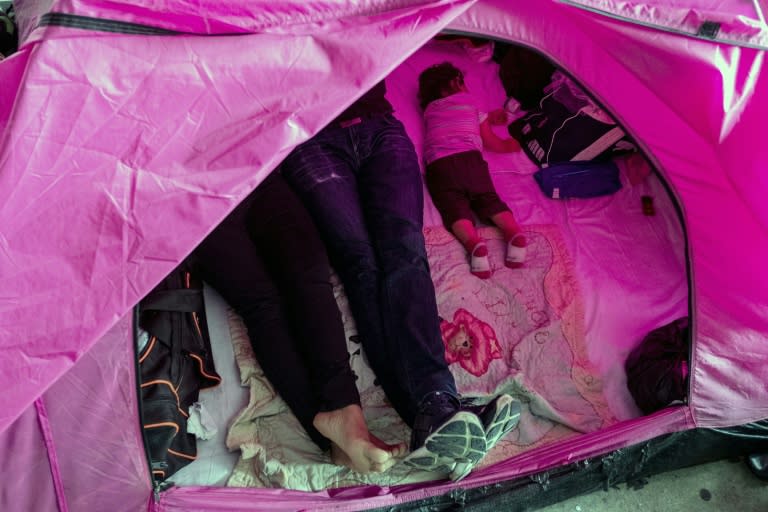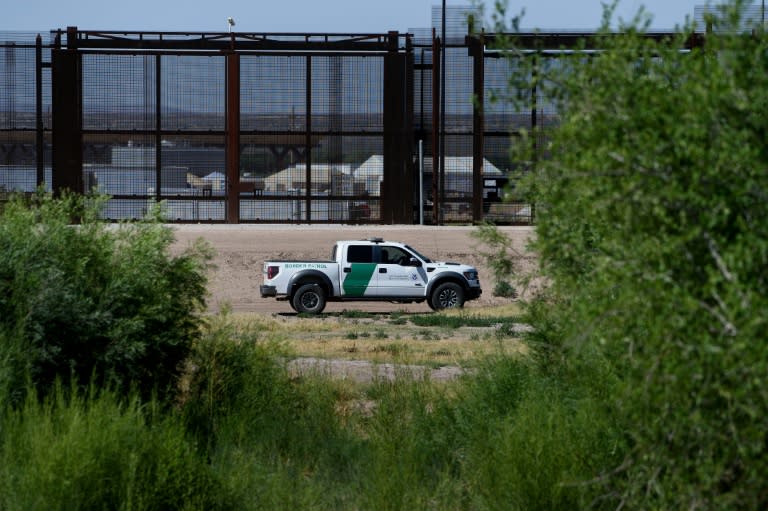Migrants fear violence, poverty more than Trump
US President Donald Trump's "zero tolerance" policy on undocumented immigrants does not mean much to Central American families crossing Mexico, who say they are more afraid of violence and poverty at home. In the border city of Tijuana, across from San Diego, California, the Mendez family has been waiting two weeks for US officials to let them request asylum. The family of five trekked all the way from their native El Salvador, only to be told the border post was already saturated with asylum requests. The long wait to formally request asylum is pushing many migrants to cross the border illegally, according to activists. Under Trump's zero tolerance policy, that exposes them to arrest. It also put families at risk of separation in the US, until Trump signed an executive order Wednesday ending the practice. The shift came after images and recordings of wailing children detained in cage-like enclosures caused global outrage -- but does not resolve the fate of the more than 2,300 children already separated from their parents. None of that has any impact on the Mendez family's determination to reach the United States. "We don't see going back to where we came from as an option. Or staying in Mexico either. It's dangerous here too. There are Mexicans also fleeing," said Jose Abel Mendez, 28, who is traveling with his wife and children, aged 10 months, six and 10. - Murky policies - The Trump administration says the zero tolerance policy is meant to deter illegal border crossings, and has portrayed the separation of children from their parents as the inevitable consequence of arresting the parents for a crime. But there is evidence that parents who approach official border crossings and request asylum legally have also had their children taken from them. The American Civil Liberties Union says hundreds of such families have been separated, and has filed a federal lawsuit over the practice. Wielder Lopez says it was the case for his father and seven-year-old brother, who legally requested asylum after traveling from their native Honduras in a caravan of migrants that triggered Trump's fury earlier this year. "They were separated nearly two months ago. My dad is in the process of requesting asylum in a detention center, but they didn't let them stay together," Lopez, 20, told AFP by phone from Monterrey, in northern Mexico. Undeterred by his father's experience, the rest of the family -- his mother and 18-year-old brother -- are now waiting for the right moment to cross over, too. "I'm taking the risk to try to make a better life," he said. "In Honduras there's a lot of poverty, and the gangs don't let you live." Brutal crime by street gangs has given Honduras, El Salvador and Guatemala some of the highest murder rates in the world. - Little choice - Many migrants have only a vague idea of US policy and how they will be affected. In the border city of Ciudad Juarez, Catholic priest Javier Calvillo, who runs a shelter for US-bound migrants, says families have stopped arriving there. "Since things heated up (with news of family separations), families don't want to go to shelters with their kids," he said. "They're afraid we'll separate them from their children." And official policy may not always be followed on the ground. Activists in Mexico say US officials have been violating their own policy by turning away undocumented migrants before they can reach the border post to request asylum -- leaving them little choice but to cross illegally. That was likely the fate awaiting 26-year-old Karla, a Mexican woman fleeing violence in her hometown along with her four children. She did not give her last name because of security fears. She said she had a message for Trump. "I don't know if he has children, but he had a mother, too. He wouldn't have wanted anyone to separate him from her. I wish he would think about us the same way, instead of with such cold blood."




